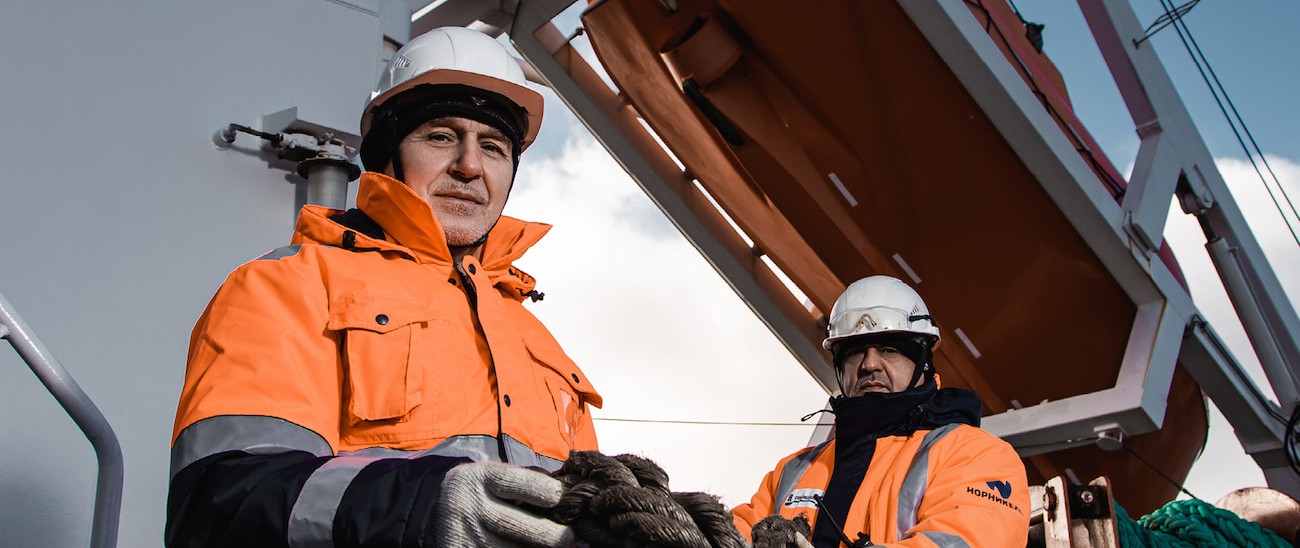Respect for human rights
Nornickel has a longstanding reputation as a responsible employer and a reliable partner for all stakeholders. It upholds high standards of responsible business conduct and respects the rights of every person involved in its operations.
The Company has zero tolerance for any form of discrimination as well as the use of forced or child labour, and ensures equal opportunities for all employees to exercise their labour rights. Nornickel does not operate in, nor does it source raw materials from, conflict‑affected or high human rights risk areas.
Respect for human rights is an integral part of the Company’s sustainability commitment. Nornickel consistently enhances its relevant practices, evaluates the results achieved, and analyses progress to drive further development. All up‑to‑date information about the initiatives implemented and results achieved in this area are available on the human rights page and in the public reports on human rights on the Company website.
Nornickel’s commitment to human rights
In its activities, Nornickel places particular emphasis on the human rights it considers a priority. The Company’s approaches, principles, and commitments in this area are set out in its internal documents.
The right to life, liberty, privacy, and the security of person as well as freedom of movement
Right to occupational health and safety
Right to protection from discrimination
Rights to the protection of family, motherhood, and childhood
Right to a reasonable limitation of working hours and paid leave
Right to a healthy environment
PJSC MMC Norilsk Nickel’s Occupational Health and Safety Policy
PJSC MMC Norilsk Nickel’s Personal Data Processing Policy
PJSC MMC Norilsk Nickel’s Freedom of Association Policy
PJSC MMC Norilsk Nickel’s Policy Regarding Support for Small and Medium Enterprises
Right to freedom of association and collective bargaining
Rights to work, just and favourable remuneration, favourable working conditions, and social security
Rights of local and indigenous communities
A requirement for counterparties to respect human rights as part of supply chain responsibility commitments
PJSC MMC Norilsk Nickel’s Community Engagement Policy
PJSC MMC Norilsk Nickel’s Environmental Policy
PJSC MMC Norilsk Nickel’s Environmental Impact Assessment Policy
PJSC MMC Norilsk Nickel’s Stakeholder Engagement Policy
Policy of Engagement with Indigenous Small Numbered Peoples
PJSC MMC Norilsk Nickel’s Responsible Sourcing Policy
PJSC MMC Norilsk Nickel’s Supplier Code of Conduct

The 2030 Socially Sustainable Development Strategy and the 2031 Environmental and Climate Change Strategy, both approved by the Board of Directors, are closely linked to respect for human rights. The Company’s key focus areas and initiatives aim to create comfortable working conditions, support employee health, unlock professional potential in line with the demands of the future economy, and enhance the quality of life for employees, local communities, and indigenous peoples while seeking to improve environmental conditions.
The Company adheres to high human rights standards, ensuring the compliance of its operations with Russian laws as well as applicable international standards and commitments.
Its corporate approach is grounded in compliance with the Constitution and legal codes of the Russian Federation along with the UN Guiding Principles on Business and Human Rights (UNGPs). Nornickel also takes into account best practices from industry initiatives and is guided by international lawFor a full list of documents, please see Nornickel’s 2024 Human Rights Report..
The Company’s top management is responsible for ensuring respect for human rights. To enhance engagement in sustainability management – including human rights protection – the system of annual team KPIs for senior management includes health and safety metrics. Specifically, the “Achievement of the H&S plan (including FIFR)” target has a weight of 30%.
Topics such as employee remuneration and motivation, working conditions, and work‑related injuries are regularly reviewed by the Board of Directors and its relevant committees. In addition, the Company implements cross‑functional initiatives aimed at protecting employee rights and achieving its strategic goal of zero work‑related fatalities. As part of these efforts, programmes to build a strong safety culture are developed and implemented; for more details, please see the Workplace Safety section.
Human rights due diligence
In 2024, Nornickel continued enhancing its human rights due diligence system (HR DDS), which consists of five key elements. The purpose of the HR DDS is to prevent, mitigate, and remedy adverse impacts on human rights.
| Classification of reports and complaints | Methodology for assessing integrated human rights riskThe integrated human rights risk reflects the current level of risk associated with each right, as well as any positive or negative trends, and can be used to further monitor the effectiveness of the HR DDS. | Risk assessment at the Group entity level |
|---|---|---|
| The team behind the Corporate Trust Line (CTL) speak‑up programme has implemented and tested a system for classifying reports. Each incoming report is assigned an appropriate category and subcategory depending on its topic and the human rights potentially involved | An integrated human rights risk assessment system was developed. The system incorporates an analysis of reports received via the CTL, the results of the “Let Everyone Be Heard. What Do You Think?” engagement survey, and non‑financial reporting quantitative indicators | Integrated risk is assessed individually for each of the Group’s production facilities, allowing for the prioritisation of areas where corrective and mitigating measures should be developed and implemented in relation to:
|
Human rights training
All Company employees are familiarised with PJSC MMC Norilsk Nickel’s Human Rights Policy and are subject to the relevant provisions of the Policy.
In 2024, the Company launched a human rights training course that covers not only theoretical foundations but also practical case studies of rights violations that employees may encounter – both in performing their job duties and in everyday life.
The course is mandatory for Security employees and is taken in addition to separate, dedicated curriculum based on training programmes developed by authorised federal executive authorities. These programmes are also intended, among others, for employees of third‑party security providers, who must successfully pass a final qualification exam to be eligible to work as private security guards.
The programmes cover topics such as the lawful use of physical force or weapons, providing medical assistance, psychological training, and protecting life and health, among other key aspects. Subsequently, employees of security providers undergo periodic annual assessments. Nornickel’s security units organise training sessions and drills for contractor security guards. In 2024, a total of 630 training sessions were conducted for Security employees.
The human rights course is not provided to employees of third‑party security providers.
